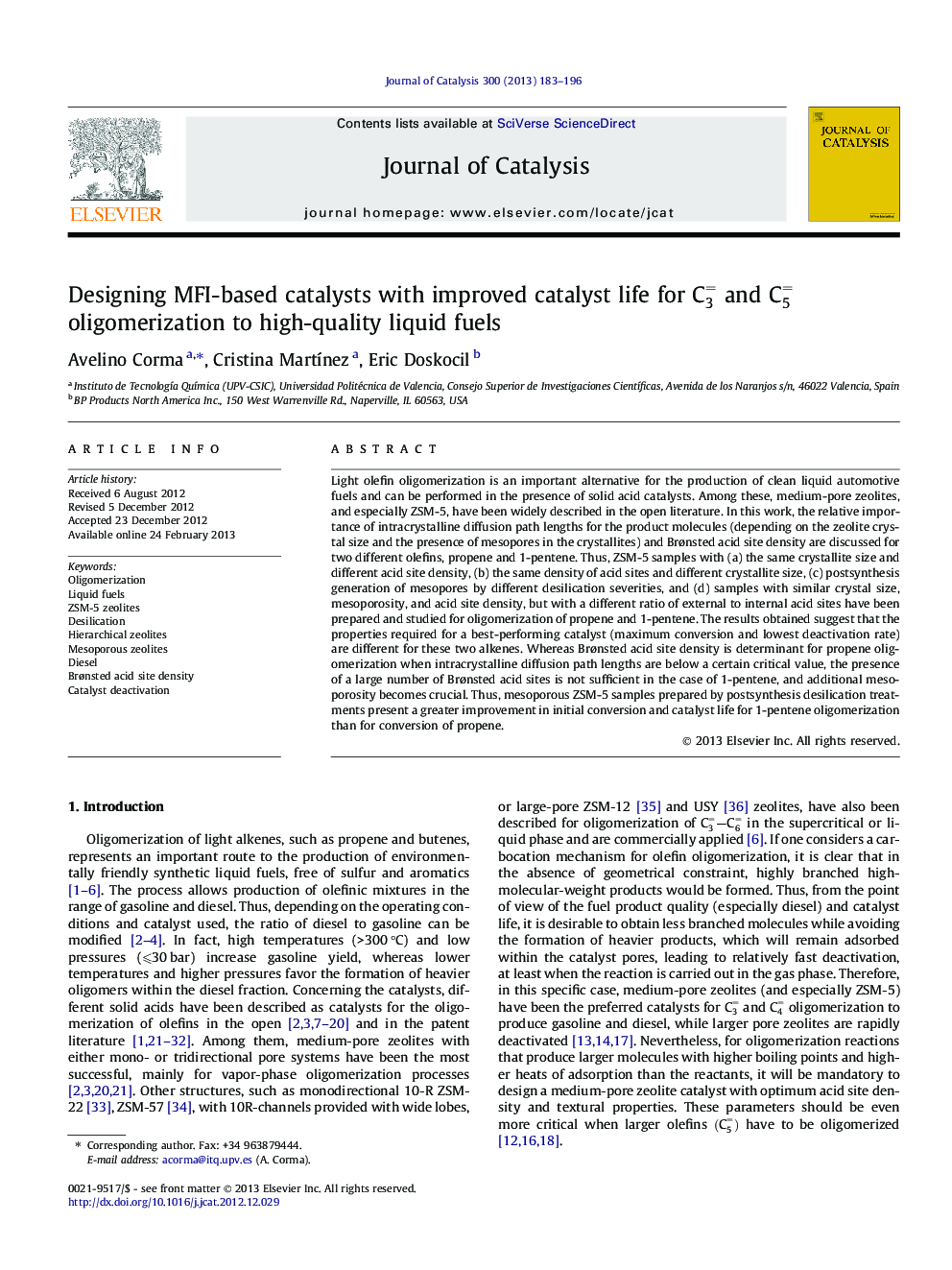| کد مقاله | کد نشریه | سال انتشار | مقاله انگلیسی | نسخه تمام متن |
|---|---|---|---|---|
| 61364 | 47577 | 2013 | 14 صفحه PDF | دانلود رایگان |

Light olefin oligomerization is an important alternative for the production of clean liquid automotive fuels and can be performed in the presence of solid acid catalysts. Among these, medium-pore zeolites, and especially ZSM-5, have been widely described in the open literature. In this work, the relative importance of intracrystalline diffusion path lengths for the product molecules (depending on the zeolite crystal size and the presence of mesopores in the crystallites) and Brønsted acid site density are discussed for two different olefins, propene and 1-pentene. Thus, ZSM-5 samples with (a) the same crystallite size and different acid site density, (b) the same density of acid sites and different crystallite size, (c) postsynthesis generation of mesopores by different desilication severities, and (d) samples with similar crystal size, mesoporosity, and acid site density, but with a different ratio of external to internal acid sites have been prepared and studied for oligomerization of propene and 1-pentene. The results obtained suggest that the properties required for a best-performing catalyst (maximum conversion and lowest deactivation rate) are different for these two alkenes. Whereas Brønsted acid site density is determinant for propene oligomerization when intracrystalline diffusion path lengths are below a certain critical value, the presence of a large number of Brønsted acid sites is not sufficient in the case of 1-pentene, and additional mesoporosity becomes crucial. Thus, mesoporous ZSM-5 samples prepared by postsynthesis desilication treatments present a greater improvement in initial conversion and catalyst life for 1-pentene oligomerization than for conversion of propene.
Hierarchical zeolites obtained by basic desilication followed by oxalic acid selective dealumination present improved catalytic behavior for olefin oligomerization to liquid fuels, especially for larger olefins such as 1-pentene. In the case of propene, the benefits are only noticeable when acidity is sufficiently preserved.Figure optionsDownload high-quality image (172 K)Download as PowerPoint slideHighlights
► Short diffusion paths give active, stable, selective C3= oligomerization catalysts.
► High acid site density favors diesel production for short diffusion paths lengths.
► Desilication–selectivation results in very active, stable oligomerization catalyst.
► Fine-tuning active site density distribution allows increased diesel selectivity.
► Larger benefits of desilicated–selectivated ZSM-5 for oligomerizing larger alkenes.
Journal: Journal of Catalysis - Volume 300, April 2013, Pages 183–196